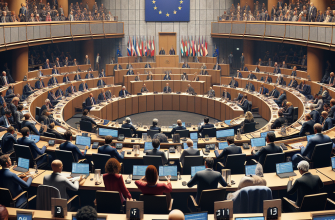- Spain’s Economic Rebirth: The Post-COVID Recovery Plan
- Introduction
- The Recovery Plan: A Symphony of Transformation and Resilience
- Key Components of the Plan
- Allocation of Funds
- Economic Forecasts and Projections
- Short-Term Projections
- Employment and Consumption
- Regulatory Framework and Implementation
- International Perspective
- Conclusion
Spain’s Economic Rebirth: The Post-COVID Recovery Plan
Introduction
Ah, dear friends! In the wake of the COVID-19 tempest, Spain stands at the precipice of transformation, armed with an audacious economic recovery plan that is as ambitious as a flamenco dancer’s twirl. This masterstroke isn’t just about bouncing back; it’s the cornerstone of Spain’s audacious strategy to navigate the rugged landscape of post-pandemic economics. Buckle up, for we are about to embark on a journey through the intricate tapestry of Spain’s aspirations to modernize its economy, revive growth, and unlock a treasure trove of new job opportunities.
The Recovery Plan: A Symphony of Transformation and Resilience
Behold the **Recovery Plan, Transformation and Resilience**, affectionately dubbed “Spain Can.” This plan is not merely a bureaucratic document; it’s the heartbeat of the country’s endeavor to harness the European funds sprinkled generously under the grandiose NextGenerationEU initiative. Think of this roadmap as the guiding star for a sustainable economic rebirth, fired up by the desire to restore growth and galvanize job creation in these new, uncharted waters.
Key Components of the Plan
- Funding: It’s not just pocket change we’re talking about! The plan rallies nearly a staggering 70 billion euros from the Mechanism for Recovery and Resilience. Spain is poised to pocket 69.5 billion euros in grants and a tantalizing possibility of up to 70 billion euros in loans from the Recovery and Resilience Facility (RRF).
- Implementation Period: The opening act of this grand show stretches from 2021 to 2023, with major investments and reforms taking center stage during this period.
- Pillars of the Plan: The Recovery Plan is ingeniously sculpted around four robust pillars:
- Green Transformation: With an eye on environmental sanctity and sustainability, Spain is stepping up to the plate.
- Digital Transformation: We’re talking about turbocharging digital infrastructures to leap into the future.
- Social and Territorial Cohesion: A rallying cry for social equality and regional development!
- Gender Equality: Because equal opportunities and rights should never be up for debate.
Allocation of Funds
But how do we sprinkle this treasure across the diverse sectors of society? Here’s a tantalizing peek into the allocation:
- Urban and Rural Agenda: 20.7%
- Infrastructures: 15%
- Green Transition: 9.2%
- Modernisation of Public Administration: 6.2%
- Companies’ Digitalisation: 23.1%
- Science and Innovation: 7.1%
- Education: 10.5%
- Care of People and Employment Policies: 7%
- Culture and Sport: 1.2%
- Modernisation of the Tax System: 7%
Economic Forecasts and Projections
Short-Term Projections
- GDP Growth: Picture this: Economic activity in Spain is expected to blossom gloriously in 2024, with a robust GDP growth rate of 3.0%. Following that, we’ll see a gradual cooling off to 2.3% in 2025 and 2.1% in 2026.
- Inflation: The pesky specter of inflation is projected to wane, settling down to a calm 2.0% by 2026 as underlying price pressures ease.
- Government Deficit: The general government deficit is projected to hit 3.0% of GDP in 2024, gradually trending downwards to a more stable figure in 2025 and 2026.
Employment and Consumption
- Job Creation: The labor market? Resilient as a luchador! Approximately 500,000 jobs are expected to spring forth each year, aiming for a grand total of 22 million employed folks by 2025.
- Private Consumption: With the labor market flexing its muscles and wages climbing past price hikes, private consumption is looking to take a joyful leap.
Regulatory Framework and Implementation
- Regulatory Modifications: The Spanish Government is not just throwing cash; it’s revamping the system! Enter Royal Decree-Law 36/2020, which lays down the needed regulatory changes to usher in the Recovery Plan. Funds will be governed by the Public Sector Contracts Act and the General Subsidies Act.
- Anti-Fraud Measures: In a bid for transparency and accountability, the Ministry of Industry, Commerce, and Tourism has set forth an Anti-Fraud Committee and a dedicated plan of action.
International Perspective
The Organisation for Economic Co-operation and Development (OECD) has sung the praises of Spain’s Recovery Plan as a crucial step towards building a sturdy recovery. They underline that efficient execution of this plan could unleash productivity growth, forge high-quality jobs, and tackle those lingering structural challenges like a cape-clad superhero swooping in for a rescue.
Conclusion
Brighten your horizons, dear readers! Spain’s Recovery Plan is not merely a list of initiatives; it’s a sweeping, ambitious symphony orchestrated to revive and reimagine the nation’s economy. With fervent emphasis on green and digital revolutions, social knitting, and gender equality, this plan positions Spain as a dragon ready to soar into a vibrant, sustainable, and inclusive economic future. So, let’s raise our glasses and applaud this daring leap toward a brighter tomorrow!









